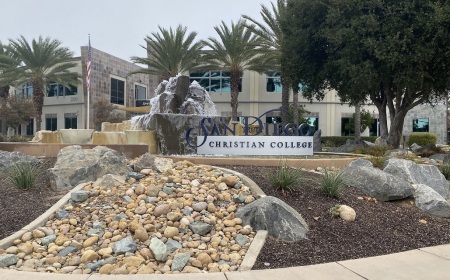Calif. Christian university to pay $225K for allegedly violating False Claims Act; university denies wrongdoing

A Christian university based in California will pay $225,000 as part of an agreement reached with the U.S. Department of Justice for allegedly violating the False Claims Act.
San Diego Christian College of Santee will pay the amount in response to litigation accusing it of violating a federal ban on incentive-based compensation, the DOJ announced on Monday.
The Higher Education Act bans any higher education institution from receiving federal student aid from compensating student recruiters based on success in securing student enrollment.
This ban is meant to protect students against practices that serve the financial interests of recruiters rather than the educational needs of a student, noted the DOJ.
“Higher education enrollment decisions should put students first,” said Acting Assistant Attorney General Jeffrey Bossert Clark of the Justice Department’s Civil Division, in a statement.
“Offering recruiters financial incentives to enroll students undermines students’ ability to make educational decisions in their own best interests.”
For their part, SDCC denies any wrongdoing in the matter, telling The Christian Post in a statement that the “allegations are without factual or legal merit.”
“SDCC’s conduct and performance was in full compliance with the regulations and guidance issued by the United States Department of Education and the Western Association of Schools and Colleges,” stated the school.
“Under the terms of the settlement, SDCC has not admitted — and in fact expressly denies — any violation or liability.”
SDCC said it agreed to the settlement because of “the anticipated costs of prolonged litigation as well as the distraction from the pursuit of its mission.”
“SDCC assures its students, faculty, staff, alumni, stakeholders, and the public that at no time did it submit a ‘false claim’ to the government nor misuse federal taxpayer funds,” it continued.
In 2014, SDCC became one of multiple Christian universities contracted with Joined, a now-defunct company that specialized in recruiting prospective students.
Maurice Shoe, president and co-owner of Joined, filed a complaint under the False Claims Act against SDCC and other Christian schools that his company had contracted with.
Shoe claimed he was unaware his company was engaged in a secret agreement with North Greenville University to make unlawful incentive payments, which complicated his agreement with other schools.
“To hear Shoe tell it, all of the universities with which Joined worked knew that the company had a relationship to North Greenville and that, as a result, they knowingly violated a provision of the incentive compensation rules (the ‘affiliate’ rule) that prohibits colleges from working with a third party that has a relationship to an educational institution,” wrote Inside Higher Ed last year.
For its part, SDCC argues that it should have been exempted from the federal law through an exception allowing “tuition-sharing with entities in limited circumstances when an unaffiliated contractor provides recruiting services as part of a broader ‘bundle of services.’”
“Shoe’s complaint wrongly asserts that this concealed affiliation between North Greenville University and Joined renders the bundled services exception inapplicable,” continued SDCC.
“Even if SDCC had known about this affiliation it would not have impacted the bundled services exception as communicated by Joined to SDCC at the time.”
In 2019, Oral Roberts University of Tulsa, Oklahoma, entered a similar agreement with the DOJ, paying $303,502 to resolve allegations brought by Shoe while denying any wrongdoing.
“A variety of factors, including the anticipated costs of protracted litigation and the undue distraction from ORU’s pursuit of its mission, led ORU to the conclusion that resolution at this time is in ORU’s best interest,” explained Oral Roberts at the time.
“In addition to denying the allegations of the complaint, ORU assures its students, faculty, staff, alumni, stakeholders, and the public that at no time did it submit a ‘false claim’ to the government nor misuse federal taxpayer funds.”





















